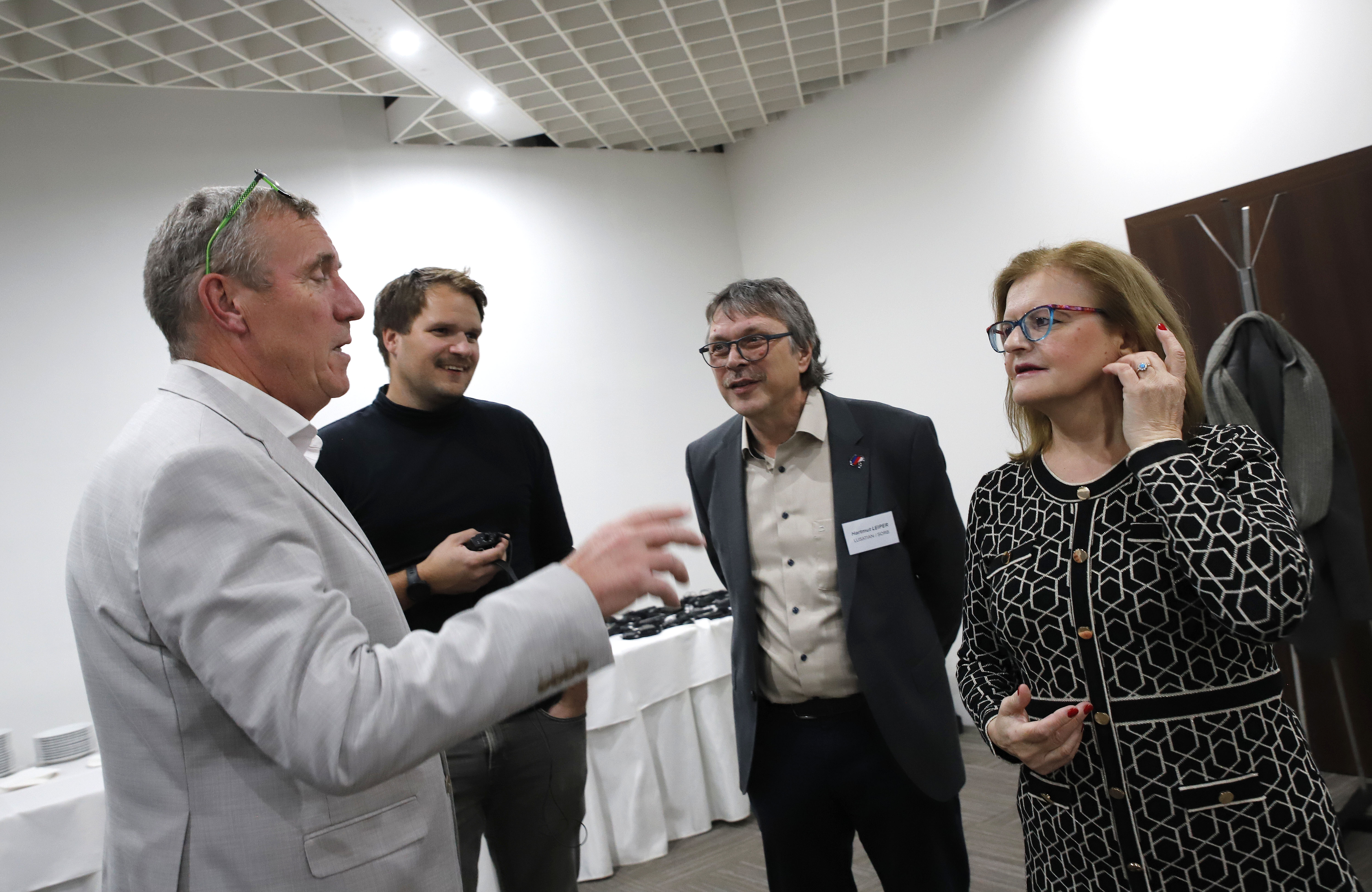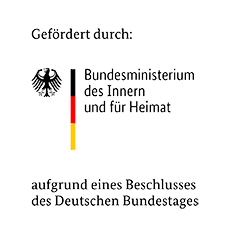
Košice has long been a multicultural city, as the participants of the 27th AGSM seminar learnt
28.11.2024
The political situation, and especially the increased right-wing extremism is a current concern of Slavic nationalities in Europe. 14 nationalities from 11 countries took part between 14-17 November 2024 in the 27th AGSM Seminar in Košice, Slovakia, hosted by the Czech Association in Slovakia.
„The political situation is very critical in some countries. This also applies to the terrible war in Ukraine, which particularly affects us as AGSM. Nationalist thinking is gaining more and more influence. An important question is how language and culture can be preserved in the face of political uncertainty” – said AGSM Speaker Hartmut Leipner in his introductory speech. He pointed out that the problems of minorities are not marginal, as they are in fact a measure of democracy and participation. The speaker stressed the importance of regular dialogue: „It is always better to talk to each other than to pass judgments from a distance. Only in this way can we learn from each other and promote our interests together.”
He reminded the participants that the situation of autochthonous minorities has deteriorated significantly throughout Europe in the last decade. There are positive examples, but negative trends are emerging, for example in the Baltic States, where Russian schools are being closed, but also in Poland. In countries that have ratified the Framework Convention for the Protection of National Minorities and the Language Charter, the recommendations of the Convention are increasingly being ignored. This was highlighted by the main resolution of the FUEN Congress in Husum. As a recent example, he mentioned the renewal of the language law in Slovakia. “I hope this will not lead to a deterioration in the position of national minorities. I hope that minorities can participate in the legislative process. At least that is what the Speaker of Parliament, Peter Žiga, said this week”, he said.

Ing. Pavel Doležal, president of the Czech Association in Slovakia
Ing.Pavel Doležal, president of the Czech Association in Slovakia and MUDr. Dagmar Takácsová, president of the Czech Association in Košice welcomed the participants. Czechs are one of the 12 recognised minorities in Slovakia. Their association was formed in 1993, immediately after the split of Czechoslovakia. They operate seven branches in the country. According to the 2021 census, there were around 30.000 people who declared Czech as their first nationality and around 15.000 as second nationality. They do not have their own schools and kindergartens.
Representatives of the Bulgarian, Rusyn and German minorities also presented their work and gave greetings to participants.
AGSM coordinator Matic Germovšek Ž., thanked for the active role the member organsiations play in AGSM and in FUEN, and highlighted the contribution of the Slovaks from Hungary, who translated the AGSM brochure to Slovak language, thus making it possible to have the publication in its seventh language. He also mentioned the record number of Slavic teams represented at EUROPEADA 2024 and congratulated the Slovenes in Italy who won the competition to become the organisers of EUROPEADA 2028 in Friuli Venezia Giulia.

Matic Germovšek Ž., AGSM Coordinator
The concerns of the AGSM Speaker were also reflected in the presentations of the representatives of the members of the Working Community of Slavic Minorities and Nationalities. Right-wing extremism is increasing in many countries, which also has an impact on the work of national minority organisations. One of the other problems is that although in many countries formal rights exist, for example, for the school system, but in practice these are not enforced, as reported by Slovenes from Austria, among others. The recent census results show a decrease in the number of speakers of minority languages almost everywhere, and the school system is finding it very difficult to compensate for this.
In line with these issues, the chairwoman of the Czech Association in Kosice, MUDr. D. Takácsová, recommended for the next meeting to discuss the question of identity, the involvement of young people in the work of nationalities and the possibilities for cross-border cultural exchange between members of the working group.
The participants expressed their high esteem for Dr. Ewgen Župan, who attended the meeting on behalf of the Rusyns in Ukraine. Dr. Župan is a paediatrician and heads the corresponding department at the hospital in the Ukrainian city of Mukachevo. Every day he saves the lives of children who have been injured in war zones.
An important part of the AGSM Seminars is to witness the local reality, and this year was no exception. The participants took part in a city tour in the culturally rich old town of Košice, the very first city with their own coat of arms recognised by the king in 15th century. Košice still uses its »latest« version of its coat of arms, made in 1504. A visit to the Cathedral of St. Elizabeth, the main and biggest church in the Eastern part of Slovakia, was also part of the tour. They also visited the premises of the Czech Association in Košice.
At the historic municipality of Košice, Mgr. Lucia Gurbáľová, Deputy Mayor welcomed the AGSM, saying that they are proud of the city’s multi-culturality, and talked about the municipality’s support for different minorities.

Júlija Kuczik, Slovaks from Hungary
The AGSM Seminar participants also visited the town of Stará Ľubovňa, where they visited the castle and the ethnographic museum and met the Lubovna branch of the Czech Association and the mayor of the town. Here, they discussed the local involvement of minority communities. Mayor PhDr. Ľuboš Tomko underlined the diversity of the town and the several ethnicities that live peacefully together in Stará Ľubovňa.The performances of a choir and a dance group were also parts of the AGSM Seminar’s evening programmes.
The next meeting of the AGSM is supposed to take place in the Italian border towns of Gorizia/Gorica (ITA) and Nova Gorica (SLO), next year's European Capital of Culture. The Slovenes in Italy will be the hosts.

Participants of 27. AGSM Seminar exploring the city of Košice
Hier können Sie die Fotogalerie vom Seminar finden.
Hier finden Sie die slowakische Übersetzung der AGSM Broschüre.
The AGSM
Established in 1996 and currently uniting 33 member organisations, the Working Group of Slavic Minorities is a well-established working group in the FUEN network, whose annual seminars of Slavic minorities in Europe, each organised at a different location, have a long tradition. In 2017, the coordination of the AGSM was taken over by the FUEN Coordination Office, which meant that the working group's long-standing efforts to further develop and professionalise its activities could finally be realised.



